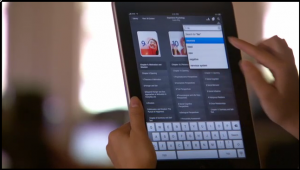What makes Inkling's apps unique is the fact that "content isn't bound by pages or sections or chapters in the same linear fashion. Rather, it's hierarchical, richly illustrated and augmented. It's interactive. It's social," Watters writes. The digital versions include quizzes, interactive infographics, and a scrolling and searchable interface.
The San Francisco-based startup has grabbed the attention of the media as well as of leading publishers in the industry. In March, the company received a round of funding from Pearson and McGraw-Hill. By fall, Inkling plans to have about 100 of the most used textbooks available. The apps will cost about 20 percent less than print books, and students can purchase individual chapters for $2.99. The company's also planning to offer the product in an Android version, the Google operating system, according to the New York Times.
Here's what's on the agenda for Inkling next fall:
- The top 100 undergraduate titles from McGraw-Hill Higher Education
- A comprehensive MBA curriculum, featuring 24 of the most popular business titles, from Pearson Education
- A full line of medical textbooks, featuring Lippincott Williams & Wilkins, an imprint of Wolters Kluwer Health
- Top undergraduate arts and sciences titles from Pearson Education
- Top medical education and reference content from McGraw-Hill Professional
As far as how many students have crossed over to the digital side, at this point, it's a chicken-or-egg question. E-textbooks made up only 2.8 percent of total U.S. textbook sales in 2010, according to the Times. Some students say they'd be willing to invest in a gadget like an iPad if half of their textbooks were available in digital editions, but exactly when that time will come, perhaps only Inkling has an inkling.


